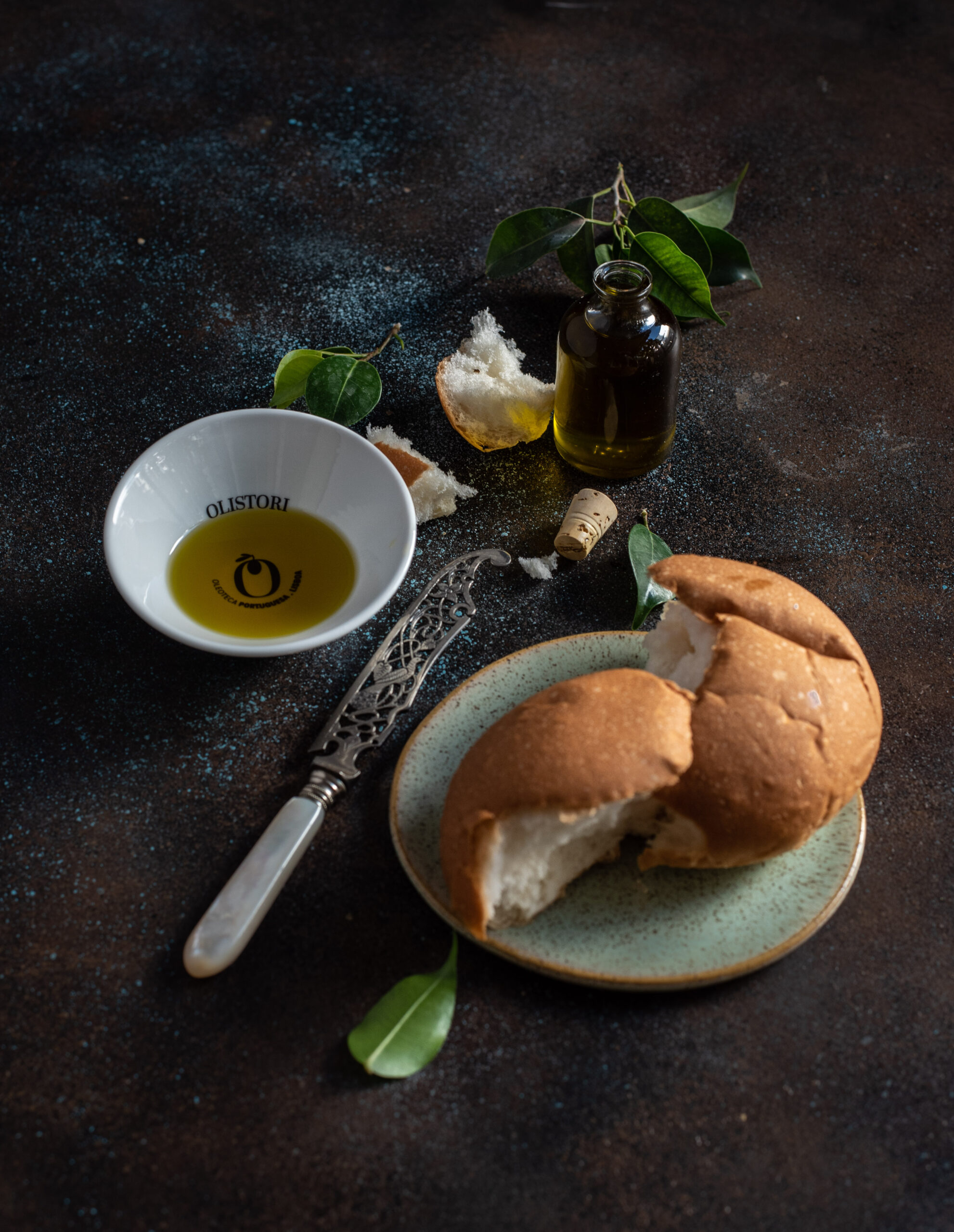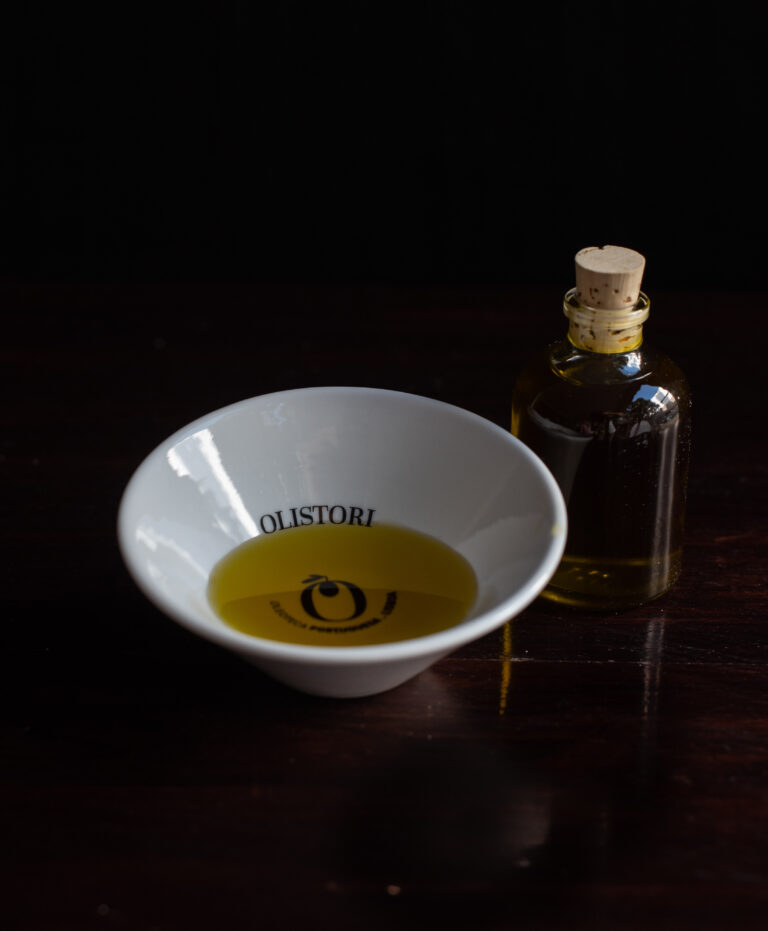When a very dear friend invited us to Portugal to attend a wedding, I was thrilled to learn that the incredible hosts of the young bride had proud family connections to the landscape of olive trees. On the very first evening of the celebration, a meet-and-greet was held at an olive orchard. As the long summer day grew to dusk and sunset fell over the grove criss-crossed by fairy lights, we dipped wonderful country bread into olive oil and feasted. That was my first experience of the importance of olive oil in Portugal. I was determined to learn more about it, and I got my chance when we returned to Lisbon and I encountered a lovely little store named Oli-Stori.
Do you remember my adventure in Italian coffee some time ago? In the same way that a little curiosity had sparked a beautiful long conversation, this European trip too gave me memories and knowledge to cherish. This was our second trip to Portugal, and we had been keen to do offbeat things and make a holiday of it after the wedding. Tourist guides and books mentioned only a little about olive oil, but I wanted to learn more. Back in Lisbon, it was a hotel concierge who told us about OliStori. We had an itinerary for the day ahead, but I insisted that we begin at that store. “I just want to pop in quickly and pick up a bottle,” I said. That’s exactly what would have happened if the co-owner, Isabelle Carreira, hadn’t been so sweet and gracious. We wound up spending almost the entire day in her lovely space.
As we walked up to the store, we saw that the door was only partially open. “Can we come in?” we enquired. Isabelle wasn’t ready for customers yet, but she asked us to sit down and be comfortable. She just wanted to head to the nearby bakery to buy some bread so we could enjoy a tasting. I was really taken by this – imagine leaving your entire store open to a couple of strangers! Charmed, I got excited and decided on the spot that I had to feature her on my blog.

Isabelle was born in France to Portuguese parents, and opened Oli-Stori together with her Portuguese-speaking French partner Thierry after 30 years in the restaurant business, when they realised that Lisbon did not have any shop that was specifically for olive oil. Theirs is a treasure trove of different varieties and brands sourced from all over the country. Portugal is not as famous for olive oil as Italy because they do not focus on the export market at all. However, the quality of their produce is just as spectacular.
OliStori is a smallish but beautifully done up space. I looked around cheerfully as we waited for her to open the store. The décor touches, I later learnt, tried to replicate elements from different farms that the oils are sourced from. There were horses and sheep, or a little doll, in every corner. These added to the warmth of the ambience. I took some impromptu photos as I looked around.
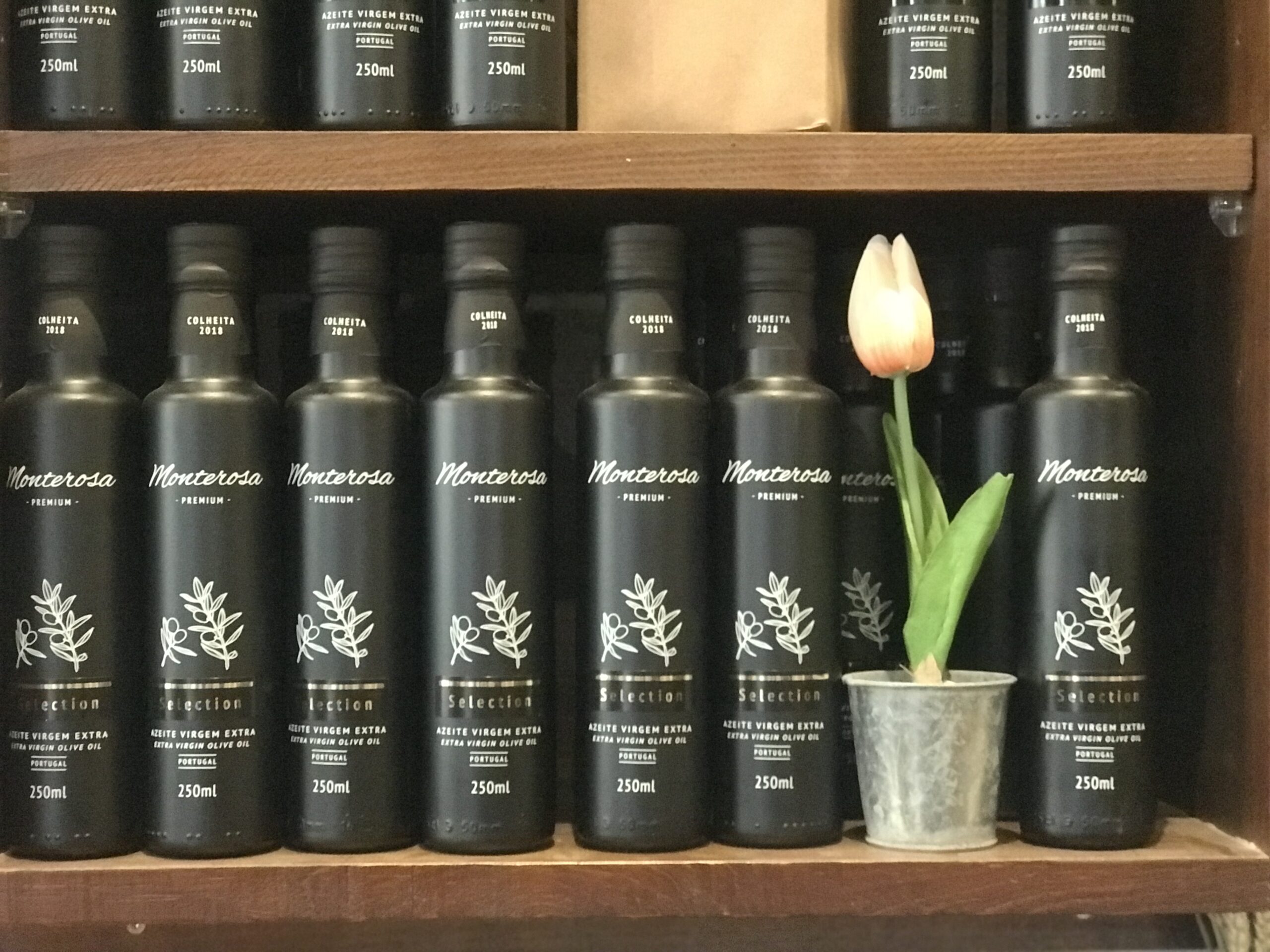
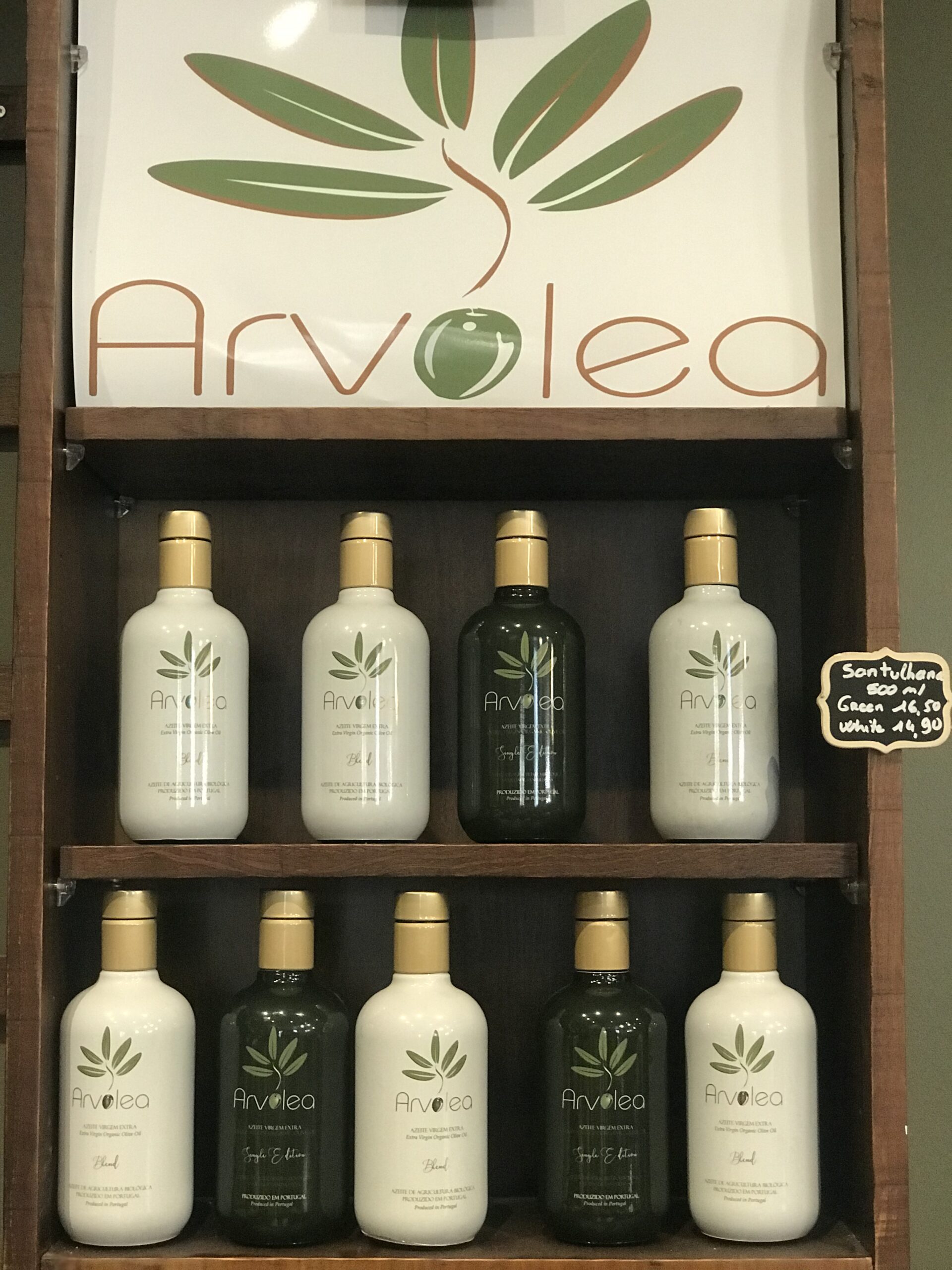
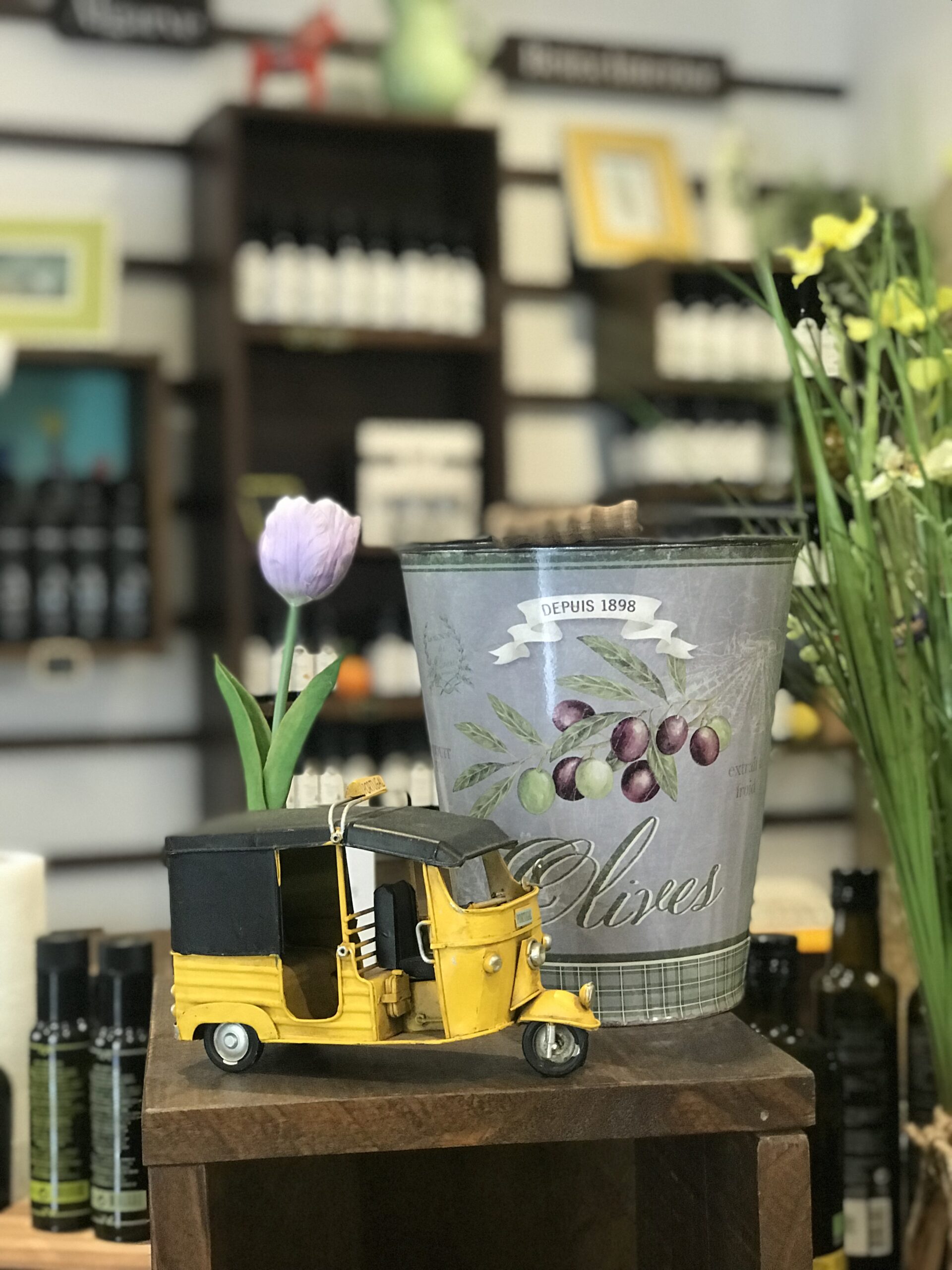
When Isabel returned with the bread, what began was part tasting, part storytelling and part educational session. She was so generous with her knowledge, and eager to share with us her wide experience.
Portugal is a small country, but has a diverse landscape, with different regions producing varying kinds of olive oil. Every oil sold in Isabelle and Thierry’s shop was sourced through their travels around the country, visiting olive farms, understanding the process of growing and what effects the weather conditions and soil types have on the produce. As she spoke, she had us sample a diverse range – it was almost like a wine tasting. And it’s true, the flavours differ!
Olive trees take 3-5 years of growth to be ready for the first harvest, and have a lifespan of up to 200 years. The fruits are sensitive to the soil and to climactic conditions. The Trás-os-Montes province in the North is especially famous. This province’s name means “behind the mountains”, and the olive trees here grow on terraced land. It is cold in winter, and hot in summer. The soil here is rich, and there doesn’t need to be much watering. These conditions are very interesting for the tree, and the olive oil here is intense and green, and has a fresh fragrance. It smells a little like tomatoes, in fact!
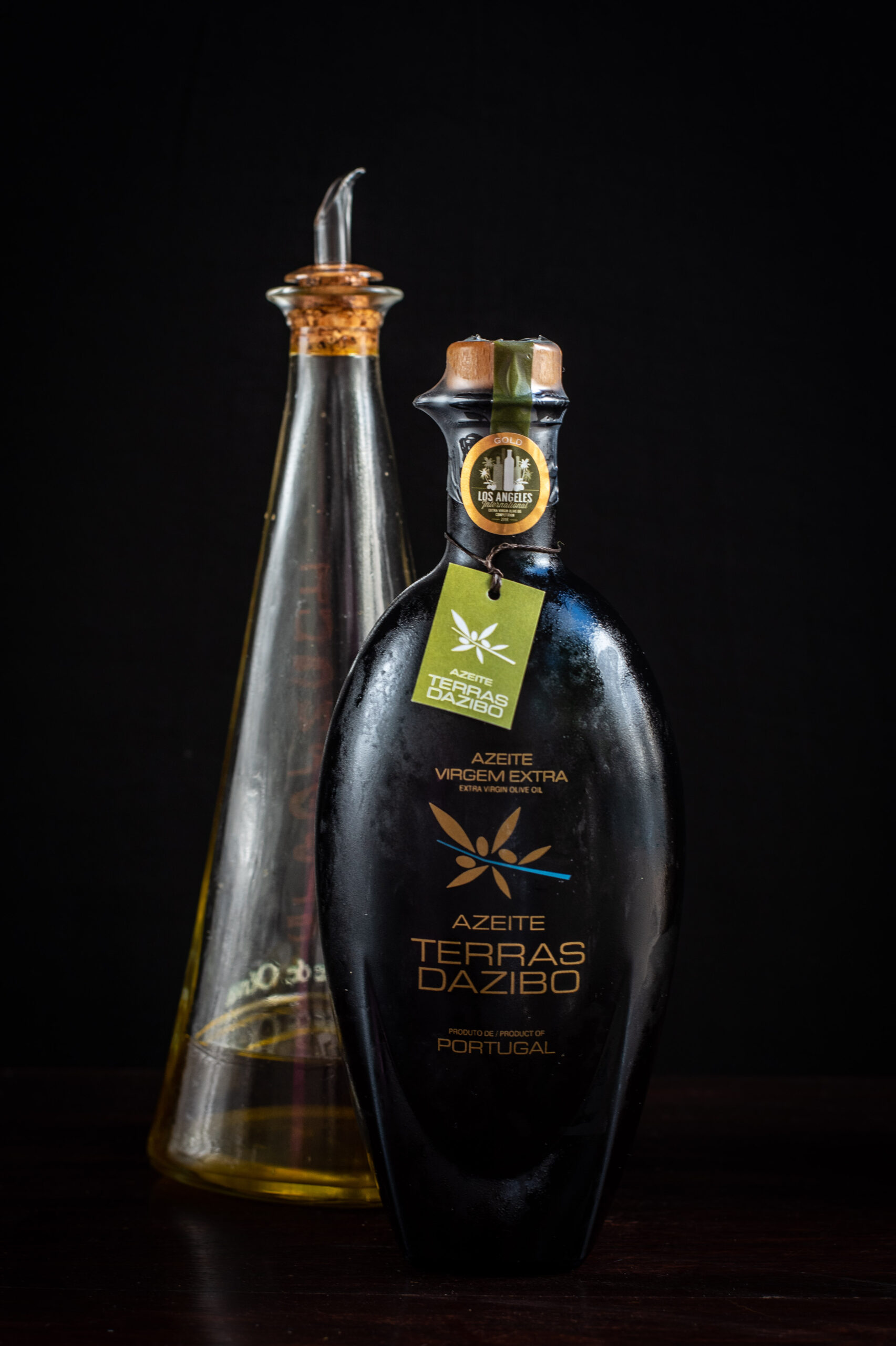
An olive oil I particularly enjoyed was from the brand Terras Dazibo, from the region Tras-o-Montes. It had a long flavour, starting sweet, then turning bitter behind the tongue and spicy as it goes down the throat. This extra virgin olive oil is created by a blend of different olives.
In Noura in the South, the trees are spaced far apart on the farm so that the roots can be more widespread. They don’t require much water, and produce black olives with a complex and light flavour. These black olives don’t grow in the north, where it is too cold. All kinds of geographic elements have an impact on the agriculture. In the Rio Maior region, for instance, the olives are saltier due to the river water that irrigates the crops. Verdeal olive oil is green and fresh, Cobrançosa is fruity and spicy, Picual is piquant (as per its name!), Madura is smooth, These are but a few examples. We were spoilt for choice at OliStori!
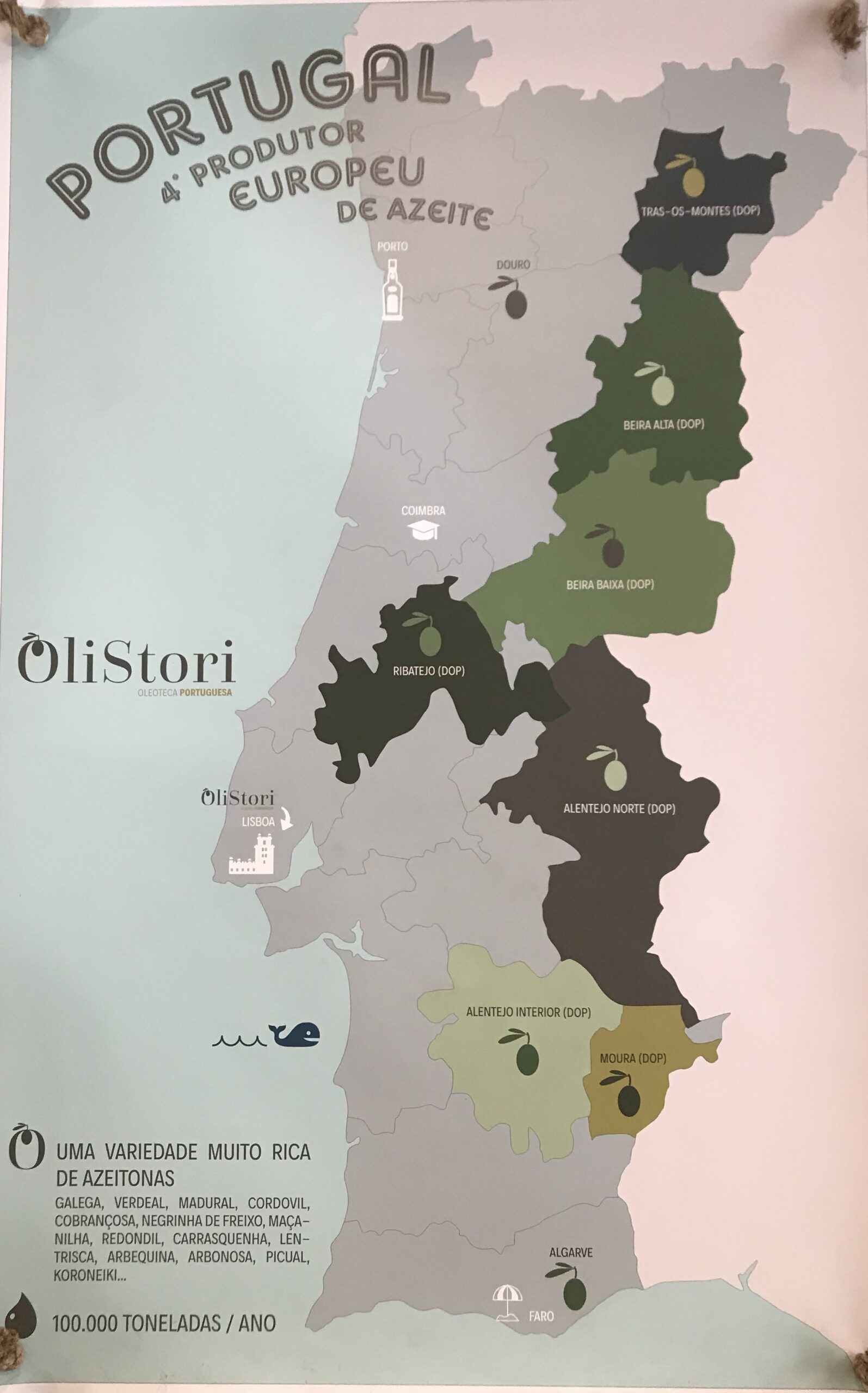
The Portuguese government, despite having no interest in the export market, takes this produce seriously and offers a certification known as DOP (Denominação de Origem Protegida) to mark the best quality olive oils. Despite not having DOP certification, the regions of Duoro and Algarve also produce excellent ones. Duoro is better known for its porto wine, whereas Algarve is believed to focus more on about their production than on seeking certification.
If you’ve ever wondered what the differences are between virgin olive oil, extra virgin olive oil and cold-pressed olive oil… I finally learned them in Portugal, thanks to Isabelle. Extra virgin olive oil is from the very first fruit that is sent to the press, and has the lowest acidity (0%-0.8%). Virgin olive oil is pressed later, and cold-pressed olive oil is treated at a temperature under 25°C and is best for flavour fusions and guarantees the preservation of aromas. The brand Olival de Risca from the Alentejo region in the South is known for these. The additional fruit or vegetable is cut and added alongside the olives during the cold-pressing procedure. Some of these fusions include classic Mediterranean herbs, mandarin, garlic, basil, lemon and chili. Alentejo is very hot, which makes it suitable for black olives, which give oils with a complex and light taste. The trees here are spaced far apart, so the roots can be more extensive, and dry farming is the usual method so as to produce more concentrated oils.
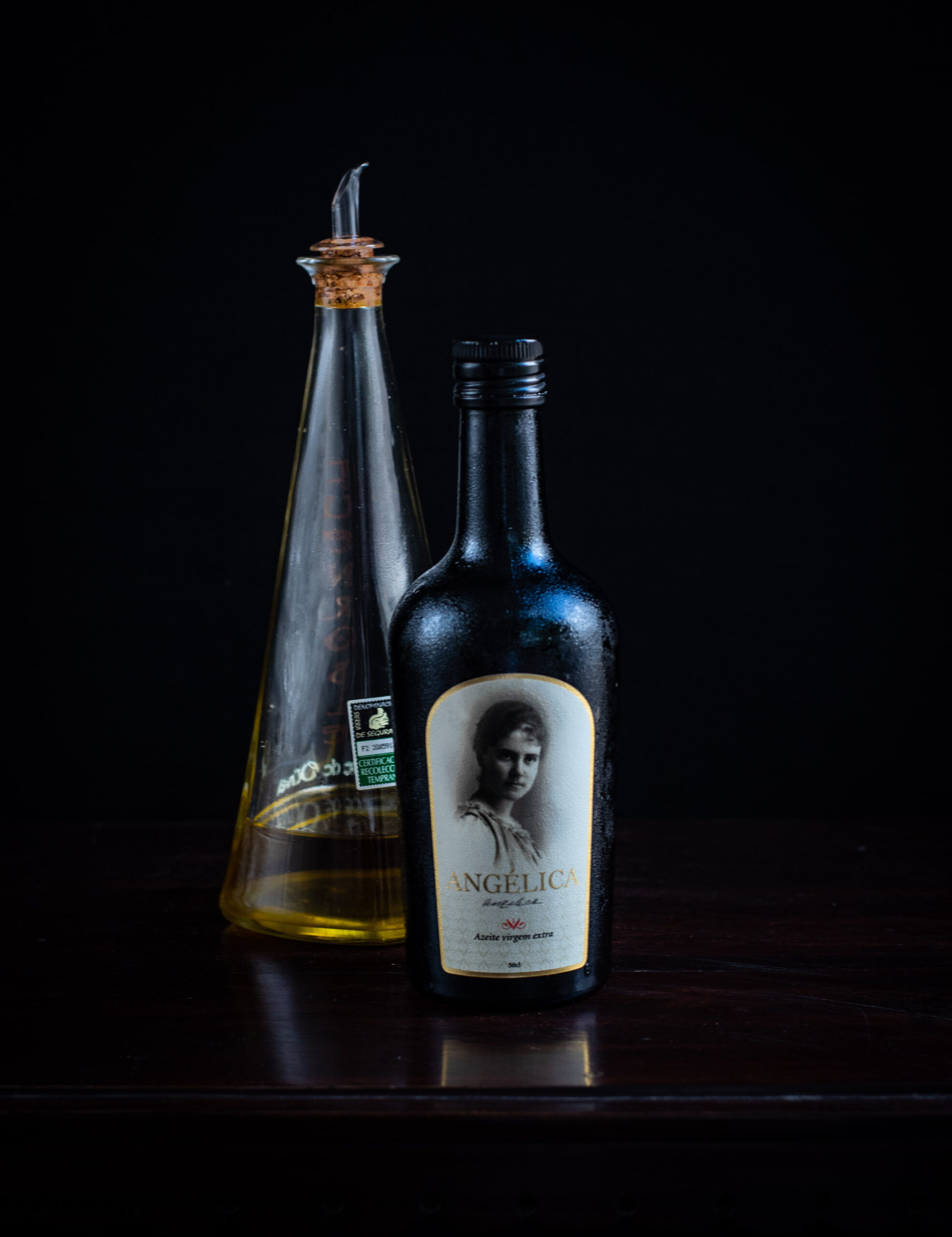
Despite spending hours at OliStori, there was no way in which to taste every single kind of olive oil they had to offer. But I loved learning a little bit about several, and the packaging often told a story by itself. For instance, the Angelica brand features a picture of the current owner’s grandmother when she was young. I carefully selected a small number of beautiful bottles to bring back home. These can be stored for up to 20 months, provided the bottle is kept closed (I plan to refrigerate, thanks to my climate). Open bottles create oxidization, which breaks down the flavour and affects the quality of the oil.
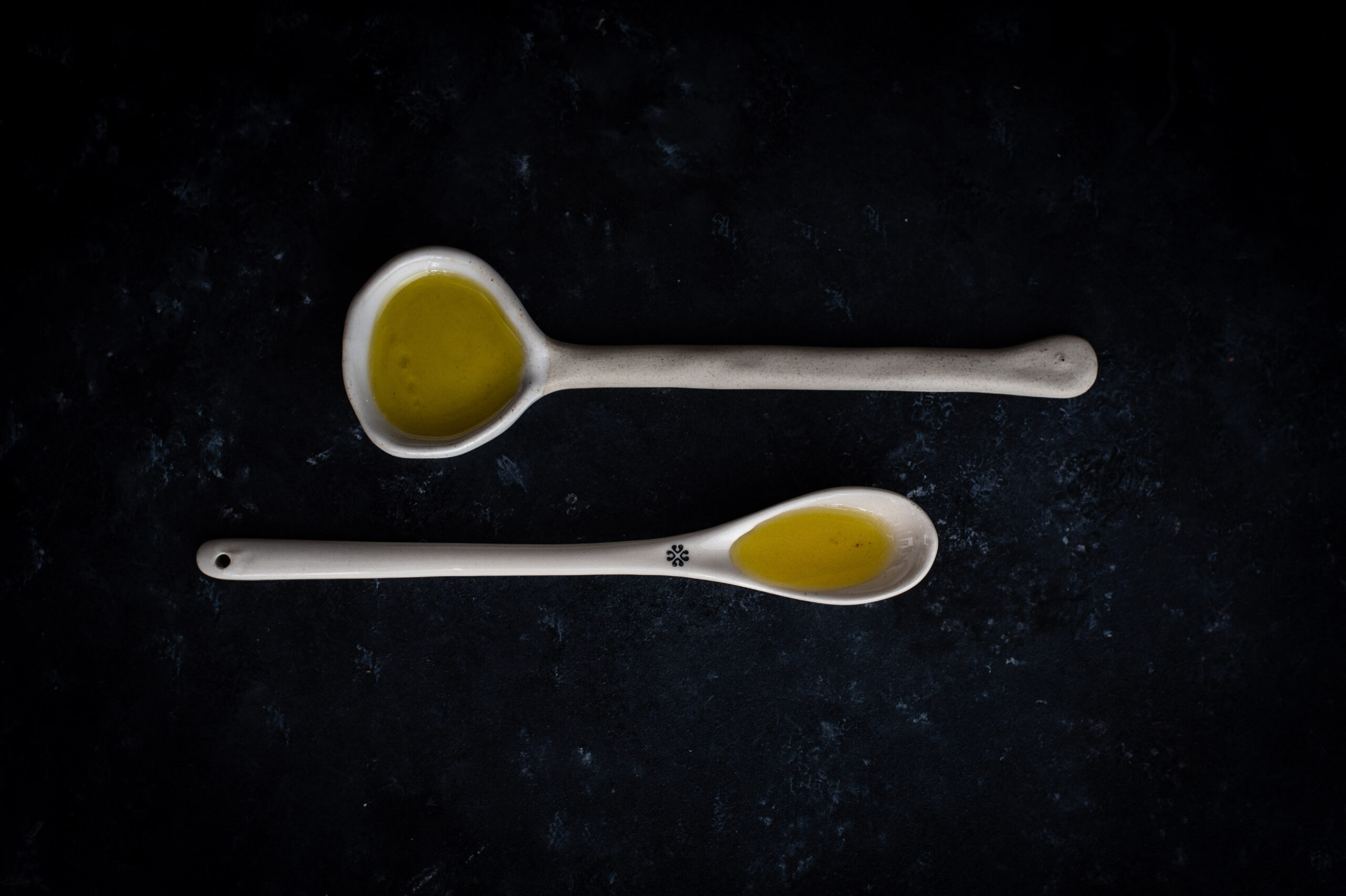
As you probably know, olive oil is quite versatile and can be used to top fish, light foods like salads and as a dip for bread. I used some of my Portuguese stock recently in this South Indian fusion hummus recipe.
Bitter tastes, very spicy tastes, complex long tastes, short and sharp tastes, fruity tastes, herbal tastes – for the first time, I understood olive oil to be as varied as wine. There were just so many to try. I’m so grateful to Isabelle for her generosity with her knowledge, time and stock of olive oils. And those hours spent in the charming OliStori are among my loveliest recent memories of Europe. If you’re ever in Lisbon, be sure to take a little walk up a slope on the cobbled street of Rua de Madelena and send Isabel my love. Oh, and OliStori also sells balsamic vinegars – but that would need another day, another trip and another post!
